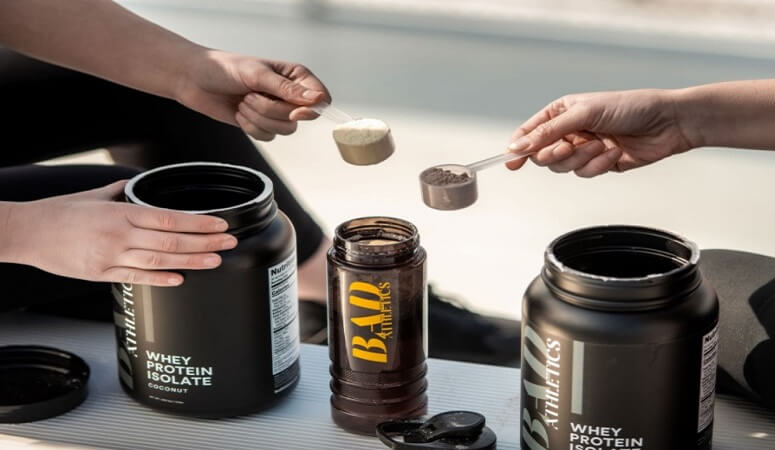
Plant-Based Protein Vs. Whey Protein
Individuals who opt for protein supplements have a very common question in their minds – Should I go for Whey Protein, or is plant a better pick? If you are one of those people, this article is here to help.
Protein is a big part of building endurance in people who actively gym or are athletes. These protein supplements aid in recovering, rebuilding, and continuing training. Whey has been the good old option, but plant-based protein is quickly gaining popularity with modern brands like Blessed Range at EHPlabs.
Let’s learn more about the differences between these protein supplements.
Constituents
One of the most considerable dissimilarities between plant-based protein and whey protein is their source. While plant-based protein comes from an array of plant sources, whey protein is a byproduct of the cheese production process.
Whey protein can be considered a complete protein and has a lot of BCAAs or Branched-chain amino acids, like Leucine.
Plant protein can come from many sources such as pea protein, soy protein, hemp protein, brown rice protein, etc. Plant proteins are great alternatives for people who suffer from lactose intolerance.
Amount of protein
This is another significant difference between these protein types. Whey protein, as mentioned before, is a complete protein. So, you can expect all the 9 amino acids and even the 11 nonessential amino acids.
This is precisely why bodybuilders usually prefer Whey protein.
Plant protein has way less protein content when compared to Whey protein. They have fewer BCAAs. Overall, there is just one plant-based protein – Soy protein that has all 20 amino acids.
People who wish to have all of the essential and nonessential amino acids should look at combining multiple plant proteins like pea or rice.
Digestibility
In terms of which protein is easier to digest, plant protein wins the race. Whey protein is produced from milk. This is why it has a huge amount of lactose which needs to be digested by a certain enzyme named Lactase.
As humans age, the production of Lactase from the small intestine reduces. Because of this change, it becomes difficult for human beings to digest Whey protein (lactose).
On the other hand, plant proteins are made from constituents far from being milk-derived. They do not have any lactose and are a smooth ride for the human digestive system.
Major plant proteins are also hypoallergenic and can be easily digested by everyone with no side effects of any sort.
Nutritional value
Both Whey and Plant proteins depict different types of characteristics in terms of their nutrition content. Whey protein has fewer calories, and they have the following nutritional advantages:
- High protein content
- High calcium content
- Low carbs and fats
- Has folate and Vitamin B12, which ensures the blood cells and the nerve cells in your body remain healthy. This also helps in avoiding age-related disorders
Plant proteins like the Blessed Range at EHPlabs are rather different in their nutritional content and are usually nutrient-dense. The nutritional content of plant proteins is as follows:
- High protein content
- High fiber content
- Higher carbs compared to Whey protein
- Has some essential fatty acids
- High vitamins, minerals, and antioxidants
Wrapping Up
Now you may think, which one should I choose? Well, simply look at crucial factors like food sensitivity, taste, costs, and taste before making the final cut. If you have lactose intolerance or digestion issues, you must keep them in count as well.



